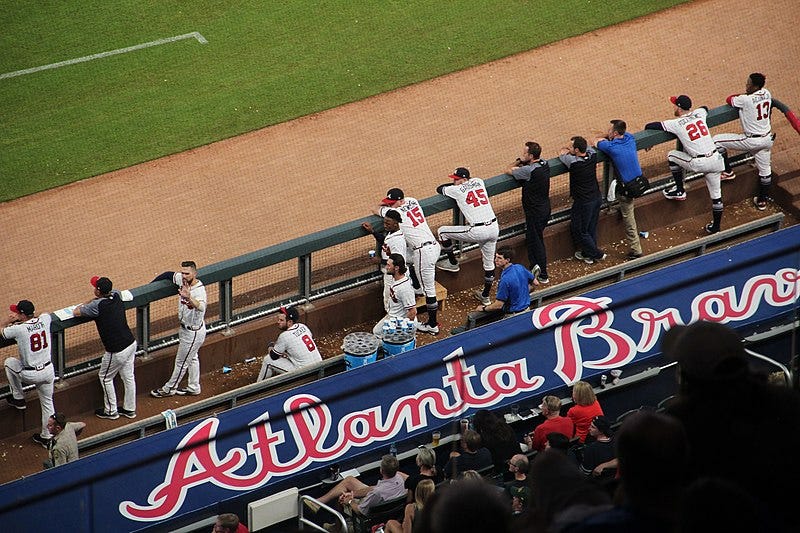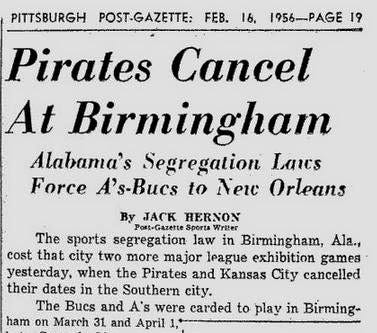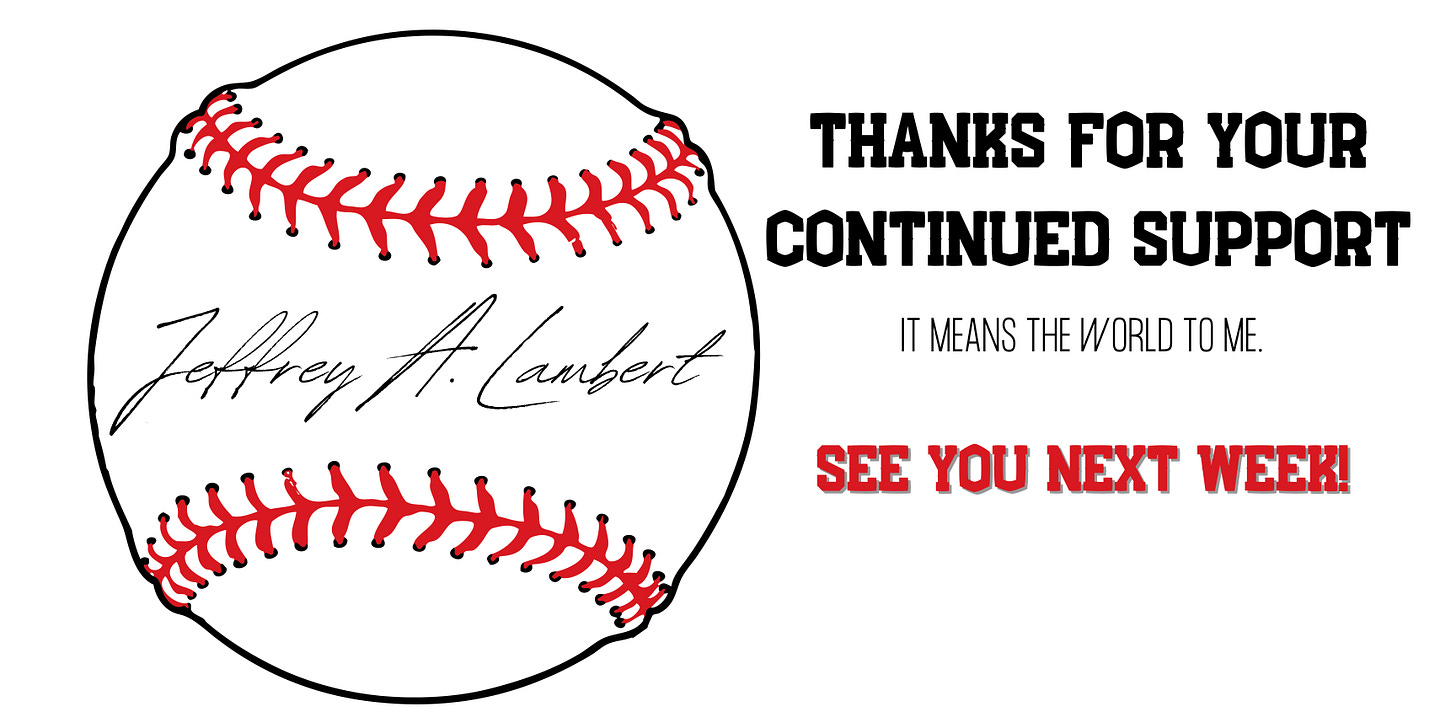This Week in Baseball History: February 12-18
A player skips a season to care for his kids, the first $3 million yearly contract is signed, season ticker holders get Valentines Day cards, and much more!
Note: This week’s entry is “read-only” due to the fact I wasn’t near my recording equipment this week. I hope you still enjoy the event recaps for this week. I hope you all have a wonderful weekend!
February 12, 1920: Frank Baker Goes Mr. Mom, Misses a Season

In 1920, the baseball world witnessed an unexpected turn of events when Frank “Home Run” Baker, a prominent player, faced a personal tragedy.
His wife, Ottalee, passed away at the young age of 31, leaving behind their two small children.
Rather than continuing with his baseball career, Baker made a selfless decision. He chose to prioritize his family during this difficult time and missed the entire season to be there for his children. His absence was deeply felt by fans and teammates alike.
However, Baker’s commitment to his family did not go unnoticed. In 1921, he returned to the game, demonstrating both resilience and dedication. Despite the challenges he had faced, Baker managed to maintain his skills, hitting an impressive .294 that season.
February 13, 1953: Shibe Park Becomes Connie Mack Stadium
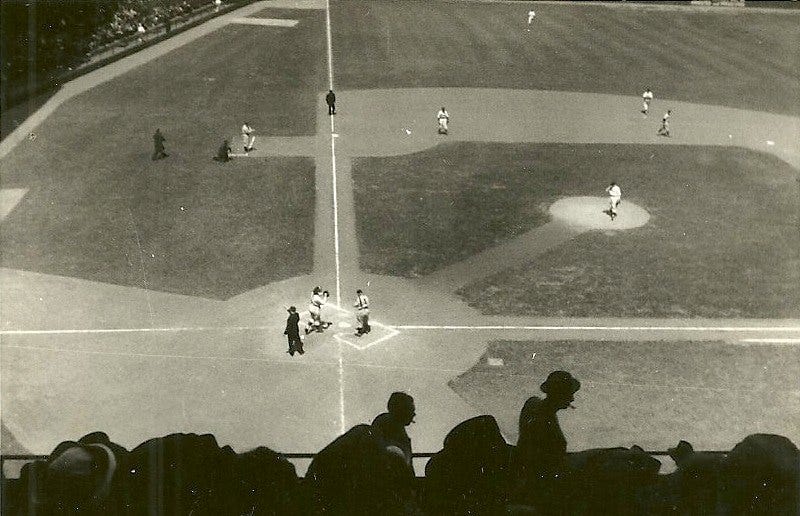
In 1953, a significant transformation occurred in Philadelphia baseball history. Shibe Park, which had been the home of both the Philadelphia Athletics (of the American League) and the Philadelphia Phillies (of the National League), underwent a name change.
The stadium was renamed Connie Mack Stadium in honor of its longtime owner and manager, Connie Mack.
Connie Mack, a legendary figure in baseball, had guided the Athletics through their glory days, including the era of “The $100,000 Infield” and “The Whiz Kids.” Check out our “Team Autopsies” episode on the Philadelphia Athletics to learn more.
The stadium witnessed memorable moments, hosting eight World Series and two MLB All-Star Games. Notably, it was the site of the first night game played in the American League in May 1939.
As the Athletics relocated to Kansas City in 1955, Connie Mack Stadium continued to be the home of the Phillies until its closure in 1970.
February 14, 1976: The Braves Send Out Valentine’s Day Cards to Fans
In a heartwarming gesture, the Atlanta Braves decided to spread love and appreciation to their loyal fans on Valentine’s Day in 1976.
The team sent personalized Valentine’s Day cards to their season-ticket holders and members of the media. This thoughtful act aimed to express gratitude and strengthen the bond between the team and its supporters.
The Braves’ 1975 season had been challenging, as they finished in fifth place, a distant 40½ games behind the Cincinnati Reds. However, the team’s Valentine’s Day card showcased their playful spirit. The cleverly rhymed message read:
“Rose is a Red, Morgan’s one, too.
They finished first, like we wanted to.
But last year’s behind us; We’re happy to say.
Now we’re tied for first, Happy Valentine’s Day.”
Despite their previous struggles, the Braves embraced optimism for the upcoming season. Their tie for first place in rhyming demonstrated that baseball isn’t just about wins and losses—it’s also about connecting with fans and celebrating the love for the game.
February 15, 1956: An Exhibition Game Was Cancelled in a Stand Against Racism
In a pivotal moment that highlighted the ongoing struggle for civil rights, the Pittsburgh Pirates and the Kansas City Athletics (A’s) took a courageous stand against racial segregation.
On this date in 1956, an exhibition game scheduled to take place in Birmingham, Alabama, faced cancellation due to a discriminatory local ordinance.
The ordinance explicitly prohibited black players from competing against white players on the same field. In a powerful act of solidarity, both teams decided to boycott the game, refusing to participate in an event that perpetuated racial injustice.
Their collective action sent a clear message: baseball should transcend racial barriers, and players should be judged solely by their skills and abilities, not their skin color.
This cancellation was a significant moment in the fight against segregation in sports. It underscored the importance of challenging discriminatory practices and paved the way for future progress.
February 16, 1989: The First $3 Million Yearly Salary Contract is Signed
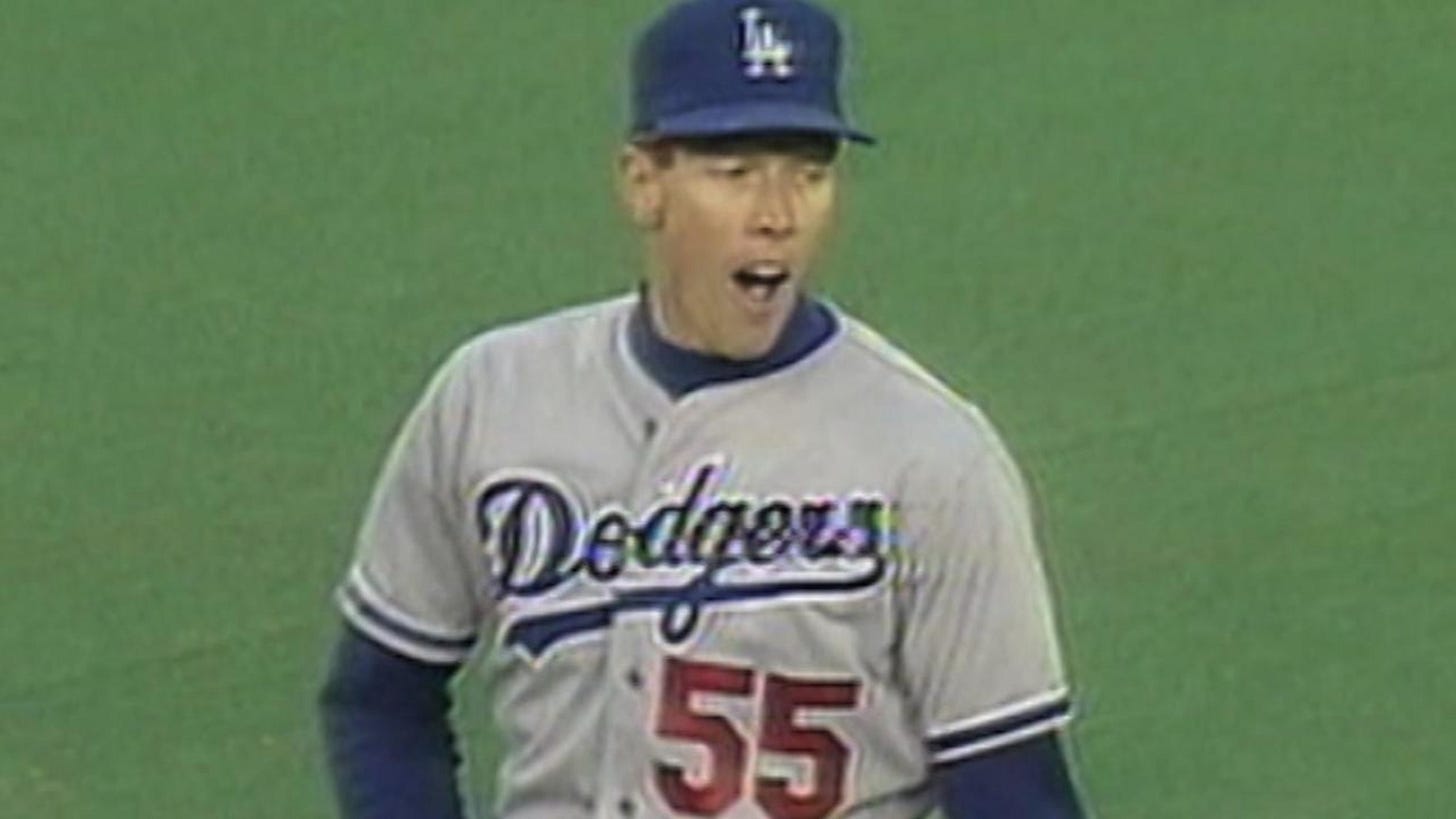
In a groundbreaking moment for Major League Baseball, Orel Hershiser, the talented pitcher for the Los Angeles Dodgers, etched his name in history. The star pitcher signed a record-setting three-year contract extension worth $7.9 million.
His salary for the 1990 season reached an impressive $3,166,000, making him the first player to earn $3 million annually in MLB history.
Hershiser’s remarkable performance during the 1988 season had set the stage for this historic contract. He went 23-8 with a stellar 2.26 ERA, 15 complete games, and eight shutouts in 35 games (34 starts).
His most iconic achievement was a record streak of 59 consecutive scoreless innings, which began on August 30, 1988. During the postseason, Hershiser continued to shine, earning NLCS and World Series MVP honors as he led the Dodgers to victory.
Beyond the numbers, Orel Hershiser’s legacy extends to his unwavering dedication to the game. His career with the Dodgers spanned 13 of his 18 big league seasons, during which he amassed 135 wins.
February 17, 1989: HoF Pitcher Lefty Gomez Died
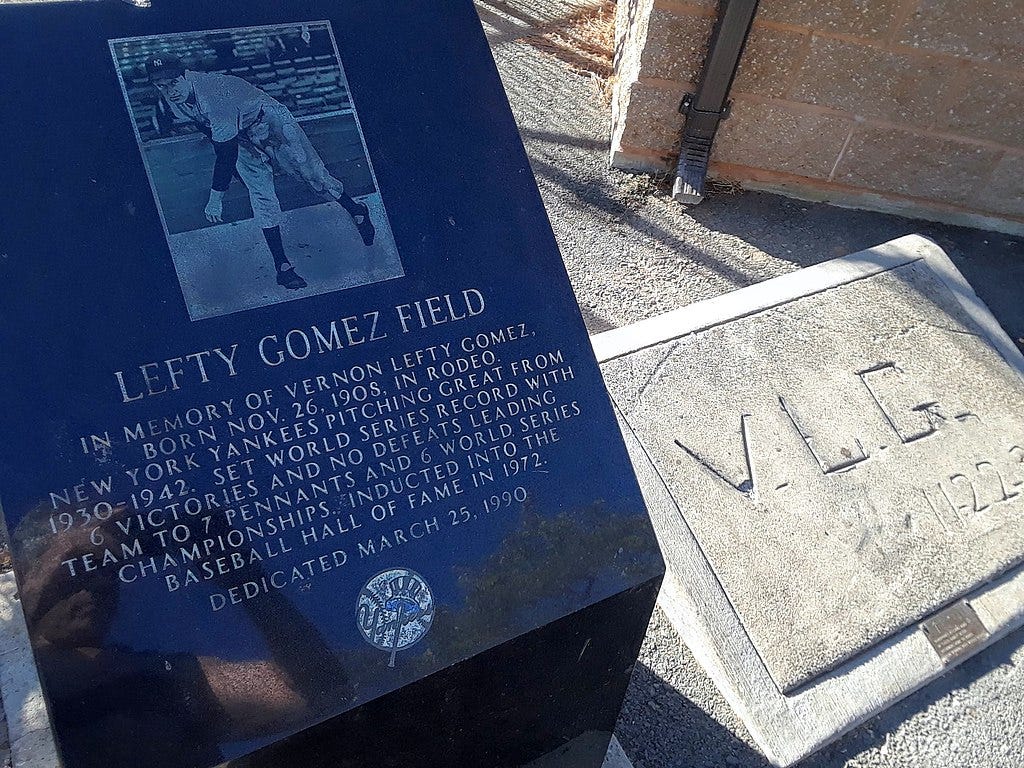
The baseball world bid farewell to a legendary figure: Vernon Louis “Lefty” Gomez. Gomez, a left-handed pitcher, had left an indelible mark on Major League Baseball (MLB) during his illustrious career.
Career Highlights and Awards:
A five-time World Series champion with the New York Yankees.
Selected as an All-Star every year between 1933 and 1939.
Achieved the Triple Crown twice (in 1934 and 1937).
Led the American League (AL) in wins (1934 and 1937), ERA (1934 and 1937), and strikeouts (1933, 1934, and 1937).
Honored as a Monument Park inductee at Yankee Stadium in 1987 alongside fellow pitcher Whitey Ford.
Elected to the National Baseball Hall of Fame by the Veterans Committee in 1972.
Gomez’s journey began in California, where he played for the San Francisco Seals after high school. His MLB debut came in April 1930 with the New York Yankees.
Despite sustaining an arm injury in 1940, he rebounded well in 1941. His last full season was in 1942, and he made a brief appearance in 1943 with the Washington Senators before retiring.
Beyond the baseball diamond, Gomez’s colorful personality and humor endeared him to fans. He married June O’Dea, a former Broadway actress, and later became a popular public speaker. His legacy lives on, and his impact on the game remains timeless. Lefty Gomez passed away in California in 1989 due to congestive heart failure.
February 18, 1944: The Reds Sign a 15 Year-Old Player
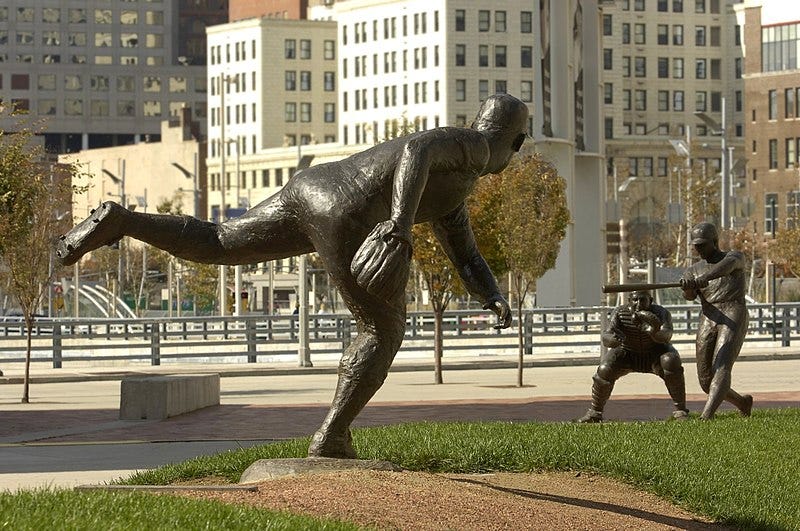
In a remarkable twist of fate, the Cincinnati Reds made history by signing a 15-year-old pitcher, Joe Nuxhall, to a professional contract. Nuxhall’s journey from high school sports to the major leagues remains an inspiring tale of youthful talent and determination.
Born in 1938, Joe was a gifted athlete even at a young age. On February 18, 1944, just one day after playing in a high school basketball game, Nuxhall found himself in the spotlight.
The Reds recognized his potential and offered him a contract, making him the youngest player ever to sign with a major league team. His debut at the age of 15 years and 10 months was historic, even though he faced challenges.
Despite a rocky start, Nuxhall’s resilience led to a remarkable career spanning 16 seasons, endearing him to fans and leaving an indelible mark on baseball history.
Hold on a Second!
Would you consider becoming a paid subscriber?
You get:
The ad-free version of 'Rounders' a whole DAY EARLIER.
A sneak peek at our secret list of upcoming episodes.
A chance to share your thoughts, which I might just read out in the episode.
Exclusive chats, events, and more fun stuff only for our members.
And if you're feeling extra awesome, join our 'Starting Nine' crew. Help shape the show, pick episode topics, and even get a shoutout as a producer.
Let's make 'Rounders' the top baseball history show together!





